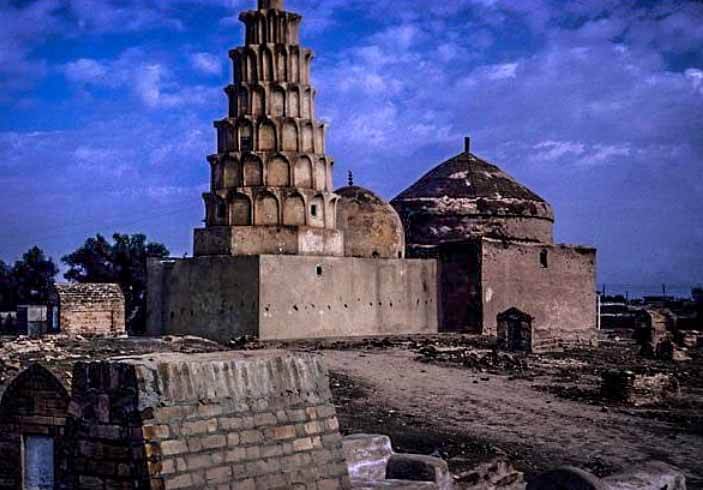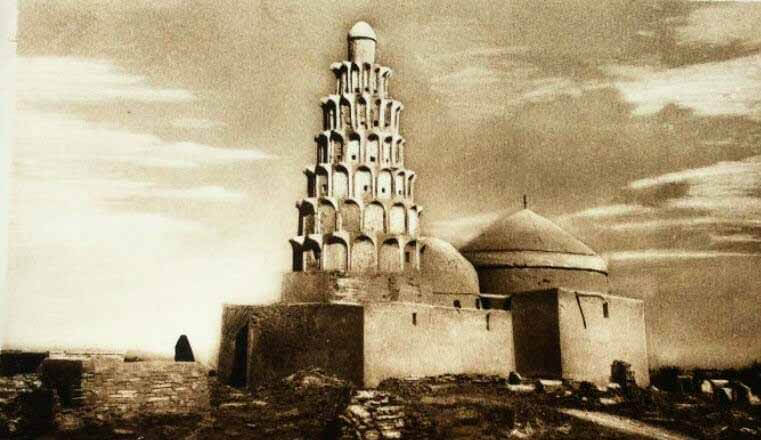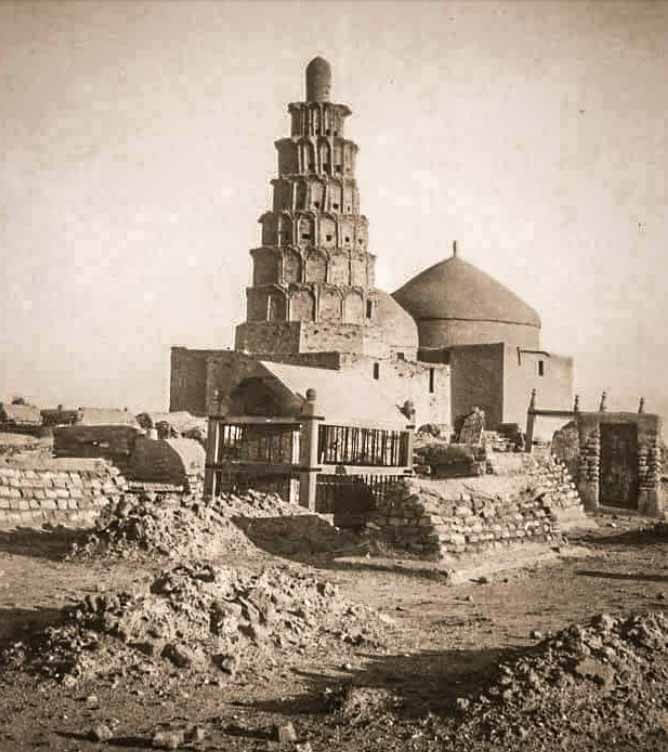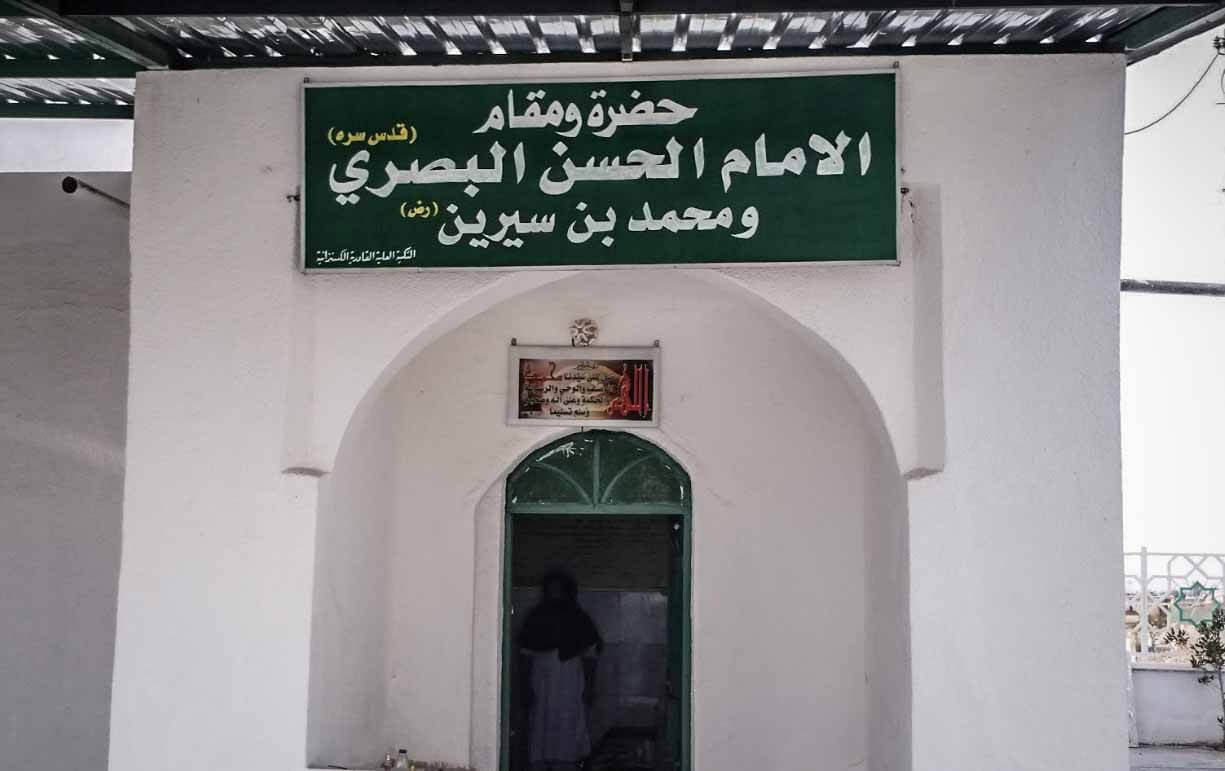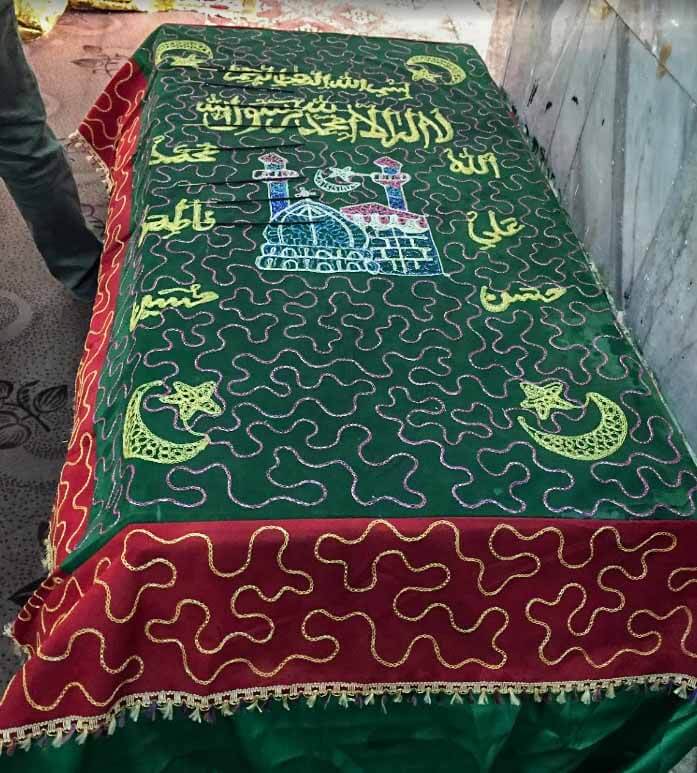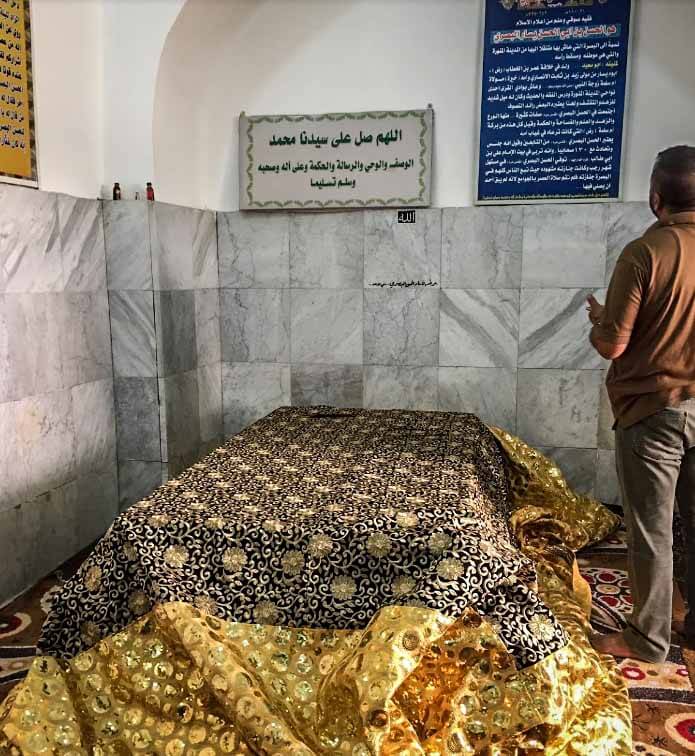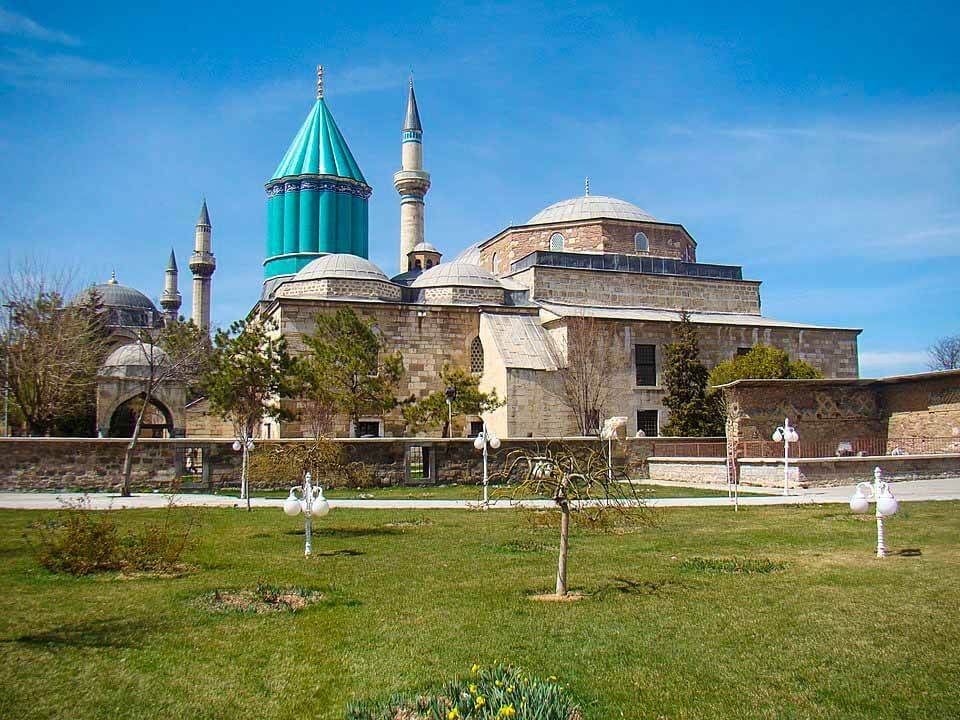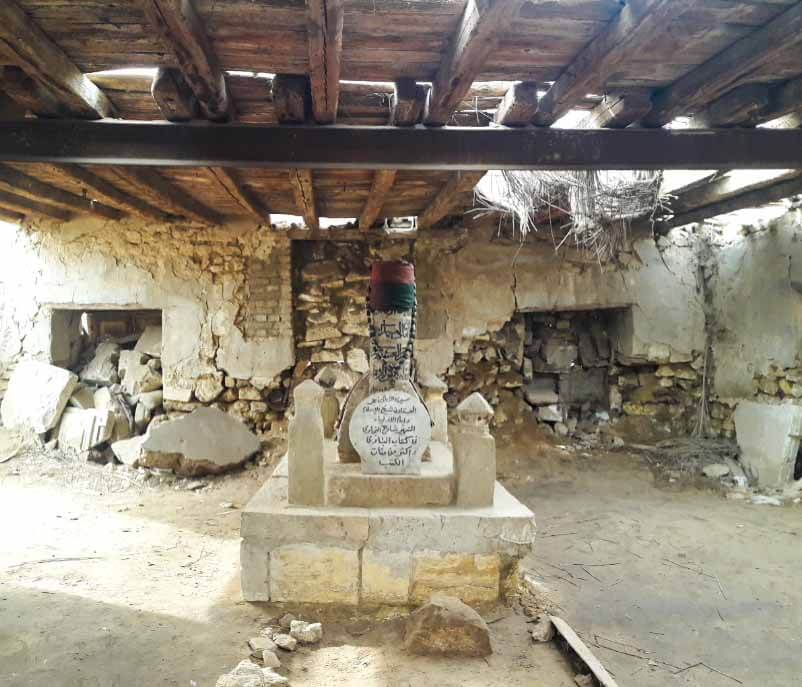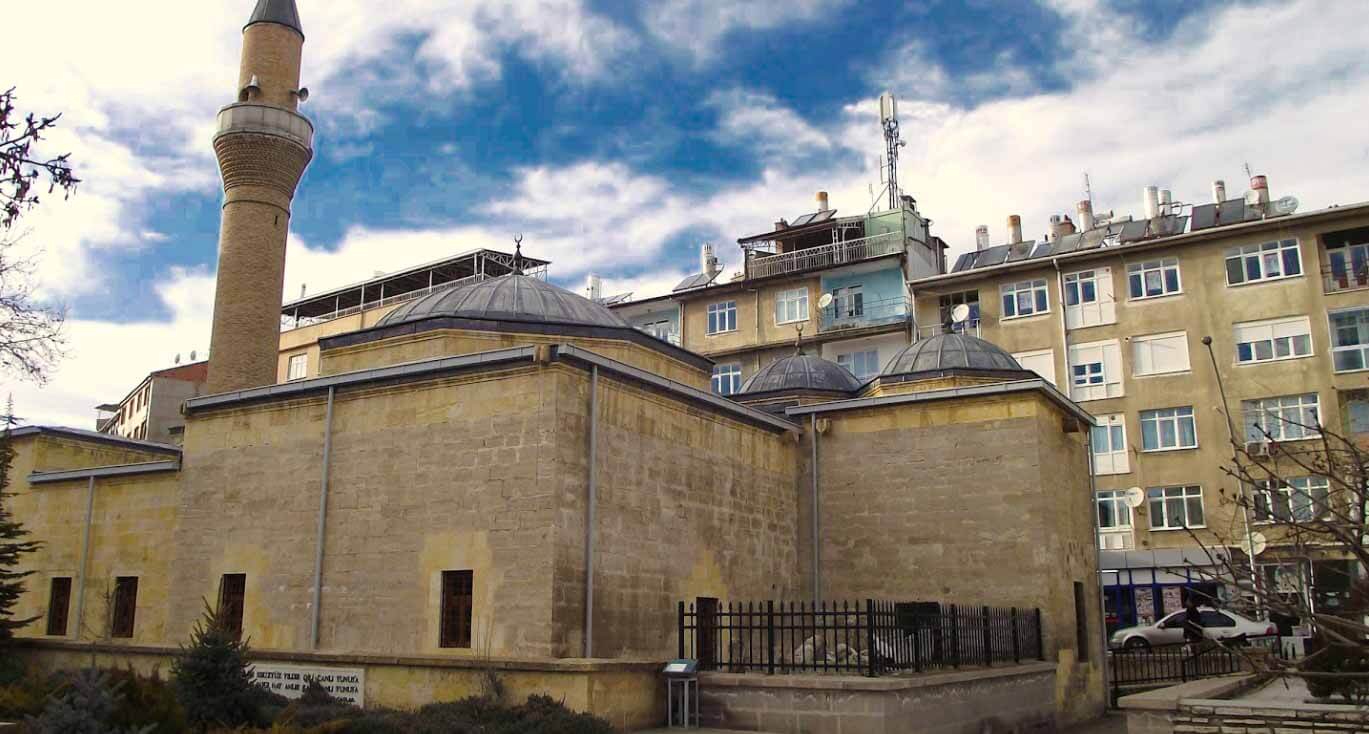Az Zubayr, Iraq
Coordinates: 30.384156, 47.698779
Ibn Sirin رحمة الله عليه, was one of the pioneers of the science of the interpretation of dreams in Islam, combining his linguistic knowledge, wisdom and insight which enabled him to become a leader in this “art” form, similar to Prophet Yusuf in his time.
Ibn Sirin رحمة الله عليه was born in Basra in 33 AH (653 AD) and died in 110 AH (729 AD), where he lived for 76 to 77 years.
He was known for his friendship with the mystic hermit Hassan al-Basri (110-110 AH) who died only 100 days later, both of whom took a route no different from the other. But it is said that they parted ways for some unknown reason.
His qualities
Ibn Sirin always dyed his hair with henna which was his distinctive mark. He was short and suffered from a slight deafness, but that did not prevent him from associating with people. He was known for his innocent humor and laughter.
In spite of his high spirits, he used to cry a lot at night in his house, and he used to sing poetry sometimes.
It is also known that he fasted a lot, he would fast one day and break the fast the next day. In addition, he was fascinated with sciences and scientists.
He fathered 30 children and among them only one, Abdullah survived, who paid his father’s debt after his death, amounting to 30,000 dirhams.
His relationship with Hz. Anas bin Malik رضي الله عنه
His father’s relationship with Hz. Anas bin Malik رضي الله عنه was nothing compared to Ibn Sirin’s relationship with the man. He studied under him and traveled to Persia to learn from him. He was one of the writers of Malik and the two men have a strong relationship and a great affection for each other.
Before Hz. Anas bin Malik رضي الله عنه died in Basra in 83 AH in the days of the rule of Al-Walid Ibn Abd al-Malik, he requested that Ibn Sirin رحمة الله عليه should be the one leading the funeral prayers and washing him, but the problem was that Ibn Sirin رحمة الله عليه was imprisoned at the time.
The prince gave a special amnesty for Ibn Sirin رحمة الله عليه who got out of jail to execute the wishes of Hz. Anas رضي الله عنه and then returned to jail once again.
Interpreting dreams
His main book is A Concise Guide for the Interpretation of Dreams is considered an important reference until today. Nevertheless, the references of Ibn Sirin رحمة الله عليه in the interpretation is still vague to this day and has not been reviewed enough through studies to shed light on his talents in this area.
What’s clear though is that he interpreted dreams based on direct semantic meanings.
He combined the interpretation with reading the human mind. He used to directly interpret the dreams of people in the markets and councils.
He was bold in interpreting dreams even to the rulers, which caused him many troubles but he didn’t care.
Leading a simple life
Ibn Sirin رحمة الله عليه did not seek to gain fortunes from his innate instincts and in interpreting dreams. In his lifetime, he suffered much poverty and had many clashes with the Umayyad caliphate because he refused their gifts. So they put him in jail.
He used to work in the market during the day and spend the night praying and studying. He worked in the textile business because of his thorough knowledge of clothes, colors and trade.
He had a great knowledge in this field, but apparently he was not much interested in money or trade.



